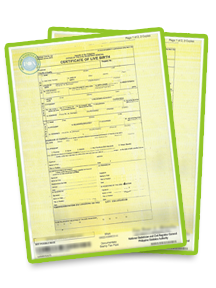
In our increasingly digital world, paper documents are being challenged by a more efficient and readily accessible alternative: e-certificates. But what exactly are these digital credentials, and how are they shaping the way institutions and individuals interact?
A Global Trend
An e-certificate, also known as a digital certificate or e-cert, is a secure electronic document that verifies the authenticity of a specific accomplishment, qualification, or status. These electronic records rely on digital signatures and encryption to guarantee their validity and prevent tampering.
Several countries have embraced the convenience and security of e-certificates, leading the way in various sectors:
- Education: In India, the National Academic Depository (NAD) acts as a central repository for academic certificates issued by universities and colleges across transcripts, reducing instances of document forgery, and streamlining processes for institutions and individuals.
- Healthcare: Singapore’s National Electronic Health Record (NEHR) stores medical certificates and prescriptions digitally, providing patients with easy access to their health information and streamlining healthcare delivery.
- Business: Many professional bodies across the globe offer e-certificates for completed courses and certifications, allowing members to readily share their credentials with potential clients or employers.
The Philippines is steadily embracing a digital landscape, with government agencies leading the charge in accepting e-certificates. This shift not only simplifies compliance processes, promotes faster and more efficient service delivery, and upholds the integrity of submitted documents.
For example, the Technical Education and Skills Development Authority (TESDA) now offers electronically signed certificates of competency, crucial for many Overseas Filipino Workers (OFWs), including seafarers. This eliminates unnecessary paperwork and expedites the service process, translating to quicker employment opportunities and smoother transitions for these skilled individuals seeking work abroad.
PSAHelpline.ph and PSA e-Certificates

PSAHelpline is in the forefront of the e-certificate wave working with the Armed Forces of the Philippines Pension and Gratuity Management Center (AFPPGMC) in processing and accepting digital copies of PSA certificates for the facilitation of pensioners’ and survivorship pensioners’ living status and benefits, streamlining processes for veterans. PSAHelpline also works together with the Department of Foreign Affairs (DFA) Authentication Division for the facilitation of PSA e-certificates for the issuance of e-Apostilles in the Philippines, for a convenient and secure process and experience.
E-certificates offer several security features that make them difficult to tamper with, such as digital signatures, timestamps, and tamper-evident seals. This helps to ensure the authenticity and credibility of the documents submitted to government agencies, reducing the risk of fraud, and protecting both citizens and the government. Additionally, e-certificates are stored securely in centralized databases, making them easier to verify and less prone to loss or damage compared to physical documents.
Why Embrace the Digital Shift?
The adoption of e-certificates by establishments and institutions across various sectors offers a wide range of benefits:
- Enhanced Convenience: E-certificates can be accessed and shared instantaneously, eliminating the need for physical copies, and saving time and effort.
- Improved Security: Digital signatures and encryption technology ensure the authenticity and integrity of e-certificates, minimizing the risk of fraud and manipulation.
- Streamlined Processes: With immediate access to digital credentials, verification processes become faster and more efficient, benefiting both institutions and individuals.
- Reduced Costs: By eliminating the need for printing, storing, and distributing paper certificates, institutions can save valuable resources and individuals can avoid associated costs.
- Environmental Sustainability: Shifting to e-certificates contributes to a more sustainable future by reducing paper consumption and its associated environmental footprint.
- Increased Accessibility: Digitally stored certificates are readily accessible anywhere with an internet connection, providing individuals with greater control over their personal information and allowing institutions to verify credentials remotely.
While e-certificates offer a multitude of advantages, it is crucial to acknowledge potential challenges that need to be addressed for their successful implementation.
The digital divide is a significant concern, as not everyone has reliable internet access or the necessary devices to utilize e-certificates. This could create barriers for certain individuals and communities, potentially excluding them from the benefits these digital credentials offer.
Technological challenges also come into play. Ensuring the security and integrity of e-certificates requires robust digital infrastructure and expertise, which can be costly and complex to implement, especially for smaller institutions. This necessitates investments and resource allocation to ensure proper implementation and maintenance.
Furthermore, the digital nature of e-certificates raises concerns about data privacy and security. Strict regulations and protocols for data storage and access are essential to mitigate these concerns and build trust among users. Collaboration between various stakeholders, including government agencies, technology providers, and privacy advocates, is crucial to establish robust data protection frameworks.
Finally, the lack of standardization across different institutions can create confusion and delays. Inconsistency in formats and verification methods can hinder the widespread adoption of e-certificates. Establishing standardized formats and secure platforms for exchange is crucial to ensure seamless and efficient communication and verification across sectors.
Moving Forward: A Balanced Approach
Recognizing both the advantages and potential drawbacks of e-certificates is crucial for their successful implementation. By addressing concerns regarding digital access, technological infrastructure, data privacy, and standardization, institutions and individuals can work together to leverage the transformation power of digital credentials. Standardized formats, secure platforms, and widespread awareness are crucial to ensuring the seamless and secure exchange of e-certificates across sectors. As we move towards a more digital future, embracing e-certificates presents a significant opportunity to enhance convenience, security, and efficiency for both individuals and institutions. By recognizing the benefits they offer and actively participating in the shift, we can pave the way for a more streamlined, interconnected, and accessible future for all.



